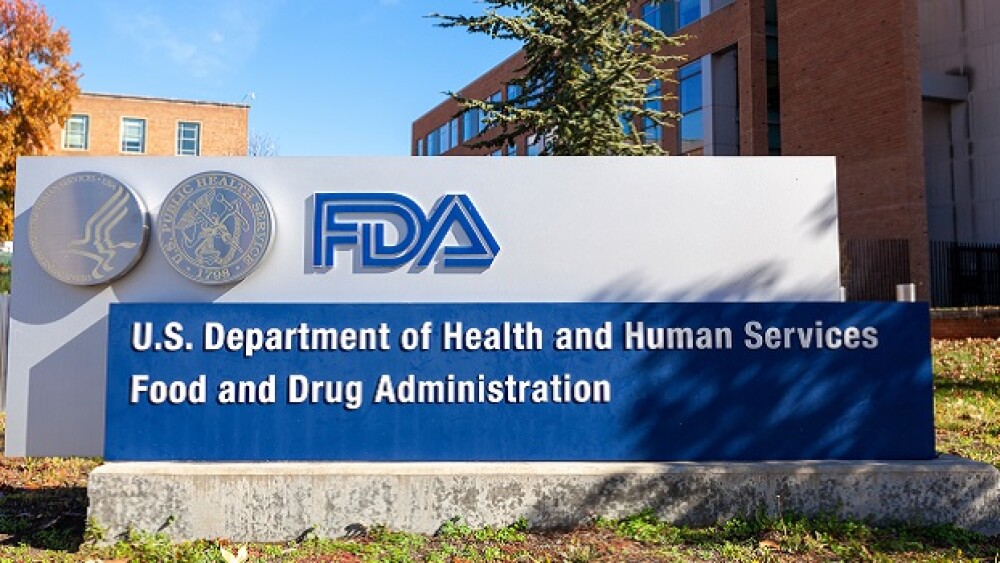Despite concerns regarding neffy’s lack of clinical evidence, the panel of experts voted in favor of the nasal spray’s approval for the emergency treatment of type 1 allergic reactions.
Pictured: Blue and white sign outside FDA building/Grandbrothers/Adobe Stock
The FDA’s Pulmonary-Allergy Drugs Advisory Committee voted Thursday in favor of ARS Pharmaceuticals’ epinephrine nasal spray neffy for the emergency treatment of type 1 allergic reactions, including anaphylaxis.
Voting 16–6, the panel of experts found that ARS’ data show a favorable risk-benefit profile of using neffy in adults. The split was 17–5 for allowing the nasal spray in children aged 18 years or below.
If approved, neffy would become the first non-injectable epinephrine medication for allergic reactions in the U.S. and would help “address significant unmet needs” of patients suffering from severe allergies, Richard Lowenthal, CEO of ARS Pharmaceuticals, said in a statement.
“I think this needle-free epinephrine spray would certainly provide the unmet need,” Jennifer Le, professor of clinical pharmacy at the University of California San Diego, said during the meeting explaining her affirmative vote.
Le also found that the data ARS presented was “informative,” particularly regarding the similarities between the injection and nasal spray epinephrine medications. These can be “extrapolated” to make informed estimations of patient response in the clinical setting, she commented.
The FDA is set to decide on ARS’s investigational nasal spray by mid-year, for which it will take the advisory committee’s non-binding recommendations into consideration.
In its briefing materials published ahead of the meeting, the San Diego biopharma presented data from neffy’s clinical development program, which includes pharmacokinetic (PK) studies showing that the nasal spray’s profile is similar to injection products.
Moreover, using pharmacodynamic (PD) measures as surrogate markers, ARS demonstrated neffy’s beneficial effects on blood pressure and heart rate, both indicative of the activation of α- and β-adrenergic receptors and evidence of its efficacy in healthy volunteers and participants with allergies.
PK/PD Problems
The FDA, however, flagged the lack of clinical data to support neffy.
In its own briefing document, the regulator indicated that establishing neffy’s efficacy based on the similarity of its PK/PD profile to approved epinephrine injections is “challenging” because data for these injection products are scarce to begin with and have high variability.
The FDA’s reviewers also pointed to the “uncertainties” associated with comparing PK/PD data between an injection and a topically administered drug, where the nasal mucosa might affect absorption.
These concerns were also raised during Thursday’s meeting.
Bridgette Jones, assistant academic dean at the University of Missouri–Kansas City School of Medicine, voted no due to the 10-minute PK delay after using the nasal spray which “could potentially put patients at risk even if the drug is used earlier on in the reaction.”
“Even the PD responses seem to be a little bit delayed in the first 10 minutes,” Jones said.
Le echoed these concerns despite her yes vote. “I am concerned about the real-world clinical efficacy and so to ensure safe and effective use, I do recommend a statement in the product labeling, if approved, to emphasize prompt administration of the dose,” she said.
Tristan Manalac is an independent science writer based in metro Manila, Philippines. He can be reached at tristan@tristanmanalac.com or tristan.manalac@biospace.com.






